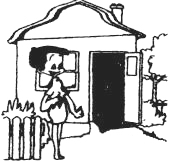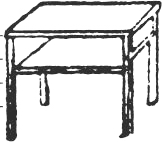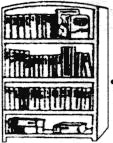
��Ŀ�� ��Դ�������} �}�ͣ���x����
�鿴�𰸺ͽ���>>
��Ŀ�� ��Դ����Ԕ �}�ͣ���x����
�鿴�𰸺ͽ���>>
��Ŀ�� ��Դ������ͬ���} �}�ͣ���x����
�鿴�𰸺ͽ���>>
��Ŀ�� ��Դ����ĩ�} �}�ͣ�����}
 . This is my
. This is my  , a c____________
, a c____________  and a shelf. There are many
and a shelf. There are many  . I like b____________
. I like b____________  . My father is a d____________
. My father is a d____________  . My mother is a n____________
. My mother is a n____________ �鿴�𰸺ͽ���>>
��Ŀ�� ��Դ��ͬ���} �}�ͣ����x�}
�鿴�𰸺ͽ���>>
��Ŀ�� ��Դ��ͬ���} �}�ͣ���x����
�鿴�𰸺ͽ���>>
��Ŀ�� ��Դ�������} �}�ͣ���x����
�鿴�𰸺ͽ���>>
��Ŀ�� ��Դ��ͬ���} �}�ͣ���x����
�鿴�𰸺ͽ���>>
��Ŀ�� ��Դ����ĩ�} �}�ͣ���x����
 1. _____ Danny sees a
1. _____ Danny sees a 2._____ in a cage.It is eating
2._____ in a cage.It is eating 3. _____ Then they watch a
3. _____ Then they watch a  4._____ near a
4._____ near a 5. ______. At last they see a
5. ______. At last they see a 6._____ in a
6._____ in a 7._____. It's Jenny's favourite animal.She wants to buy some 8.______ to feed it. WhatdoesDannywanttodo? Dannysays, " Let'sgotoseethe
7._____. It's Jenny's favourite animal.She wants to buy some 8.______ to feed it. WhatdoesDannywanttodo? Dannysays, " Let'sgotoseethe 9.____. I have some
9.____. I have some 10._____ to feed it.��
10._____ to feed it.���鿴�𰸺ͽ���>>
��Ŀ�� ��Դ��ͬ���} �}�ͣ��������
| ������ա� | ||
| This is Little Zeke. 1 is aboy. This is Emma. 2 is a girl. Emma is Little Zeke's friend. Little Zeke lives 3 Emma's desk at school. He often (����) talks to Emma. Emma hasmany friends, Tom, Nan and Jane are 4 friends. Now, where is Little Zeke? Oh, Look. It's 5 Emma,s desk. | ||
| ( ) 1. A. He ( ) 2. A. It ( ) 3. A. in ( ) 4. A. her ( ) 5. A. on |
B. he B. she B. of B. she B. from |
C. it C. She C. at C. it C. to |
�鿴�𰸺ͽ���>>
�ٶ����� - ����(x��)��(c��)�б� - ԇ�}�б�
����ʡ��(li��n)�W(w��ng)�`���Ͳ�����Ϣ�e��(b��o)ƽ�_(t��i) | �W(w��ng)���к���Ϣ�e��(b��o)���^(q��) | ����p�_�e��(b��o)���^(q��) | ��vʷ̓�o���x�к���Ϣ�e��(b��o)���^(q��) | �����֙�(qu��n)�e��(b��o)���^(q��)
�`���Ͳ�����Ϣ�e��(b��o)�Ԓ��027-86699610 �e��(b��o)�]�䣺58377363@163.com